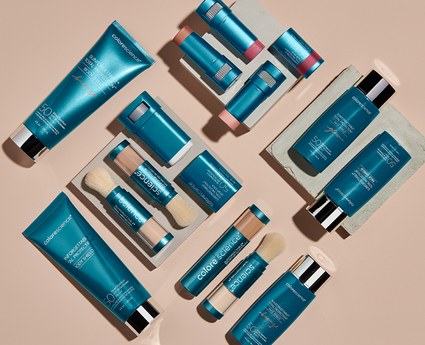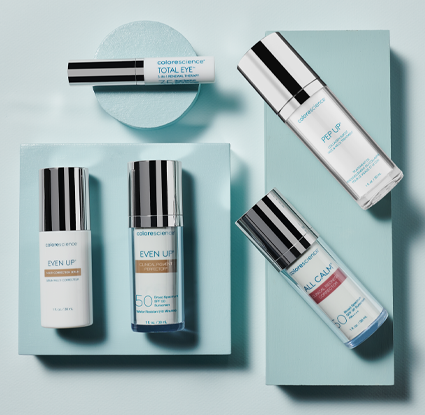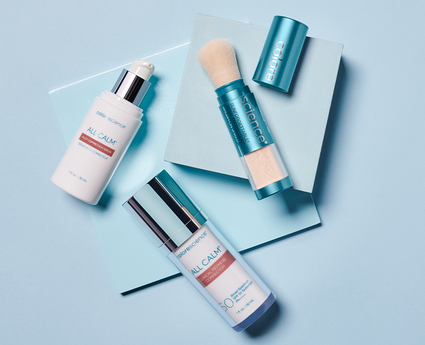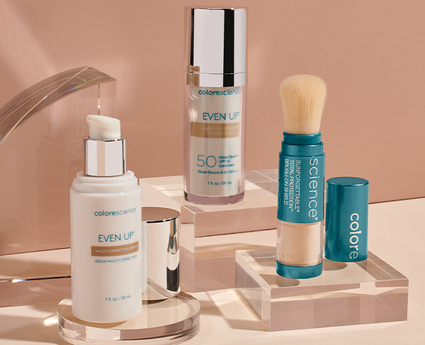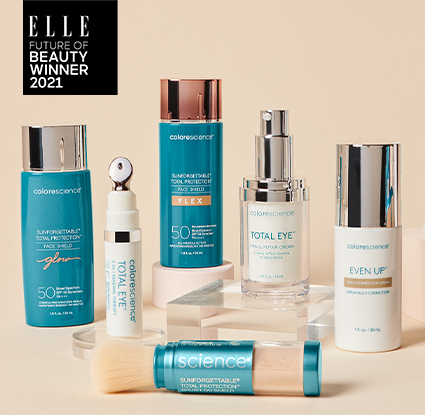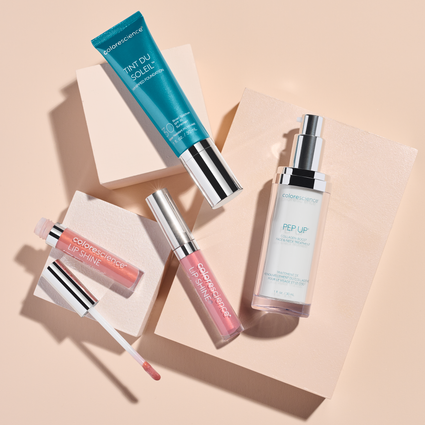Personalized Skin Care: Build Your Ideal Routine
The right skincare routine can do wonders – relax wrinkles, reduce pore size, fade imperfections, and the list goes on. But, like personalities, skin care needs vary for each individual. Taking a one-size-fits-all approach can lead to lackluster results or, worse, breakouts and irritation. That’s why personalized skincare is so important.
A personalized skincare routine can solve specific problems that a generalized skincare regimen might not. For example, persistent dry skin requires extra attention to moisturizing in a way that oily skin doesn’t. Identifying your unique skin care needs is a necessity if you want to successfully address issues with your skin.
Let us help you personalize your skincare routine. We can help you quickly identify factors that apply to your own skincare requirements and build your new regimen.
- What Is Personalized Skincare?
- What to Consider When Developing a Personalized Skincare Routine
- How to Get Started with Personalized Skincare
- When Should You Get Professional Help?
What Is Personalized Skincare?
Whether you’re browsing online or in the skincare aisle, finding the right treatments can be overwhelming if you don’t have much experience with skin care. There are millions of products available. With so many to choose from, it’s easy to wind up using products that don’t work for your skin.
If you’ve found yourself choosing the most attractive package or using the same products as friends or family, you are not alone. But you might be missing out.
Fortunately, with a little guidance, it’s not difficult to refine your personalized skincare routine. Once you have a better understanding of factors to consider, like your skin type, lifestyle needs, and environmental challenges, you can quickly narrow in on specific products that can do more for your skin.
What to Consider When Developing a Personalized Skincare Routine
There are four main factors that you should consider when creating a skincare routine personalized to your needs. With the below in mind, you can more easily find products that will do the most for you and stay away from those that might not be the best for your skin.
Genetics
Your genes are at least partly responsible for things like:
- How dry or oily your skin is
- Whether you get under-eye bags
- How your skin ages
- Whether you’re at high risk for hyperpigmentation
Paying attention to familial traits can help you anticipate what preventive measures you should be taking or what conditions might need treating. For example, if your mom and your grandmother both have dark circles, and you do too, you can probably assume that it’s in your genetics.

Luckily, any genetic predispositions you have to certain skin issues are likely common in many other people – which means there are skin care products that can help.
Skin Type
Everyone has a skin type, which can include oily, dry, or combination. Keep in mind that skin types can change depending on different factors, such as aging or hormonal changes.
Here are the basics you should know:
- Oily skin: Skin that falls into this category is prone to producing excess oil, which can clog pores and lead to acne breakouts. Oily skin is common in younger people and can change to dry skin as we age.
- Dry skin: When your skin is dry, it’s common to deal with flaking, itching, and irritation. Dry skin can also result from aging and may be accompanied by fine dehydration lines and wrinkles.
- Combination skin: Many people have combination skin, which often presents as oiliness on the nose and dryness on the cheeks.
- Hyperpigmentation: Hyperpigmentation is a skin condition characterized by dark spots on the skin and is often a response to sun exposure.
There are plenty of skin care products designed to address all of these skin types.

Lifestyle
Genetics are responsible for our skin type and other things we can’t do much about. But our lifestyle choices also contribute to the quality of our skin, and there is something we can do about that.
Some lifestyle factors that might be affecting your skin include:
- UV light exposure: Whether you are getting UV light from the sun or tanning beds, it is affecting your skin. UV light can contribute to premature aging, meaning more wrinkles, spots, and other issues. It can also increase your risk of skin cancer. Many skin care products include SPF protection because of this.
- Diet: What you consume on a regular basis – or what you don’t – can affect your skin health. Try to include plenty of fruits, vegetables, whole grains, nuts, and seeds in your diet. Moderate consumption of dairy, eggs, fish, and poultry, and minimize red and processed meats and alcohol. Hydration is also key.
- Exercise: A regular exercise routine helps you sleep better, manage stress, and improve blood flow. All of these can promote better skin health.
- Sleep: Poor sleep over an extended period may contribute to premature aging of the skin. Sleep helps your body heal and recover, and this includes your skin.
- Smoking: Smoking cigarettes is one of the biggest contributors to skin damage and premature aging, along with UV light exposure.
Understanding how lifestyle affects your appearance and health can help you make adjustments that will protect your skin over your lifetime.
Environment
There are multiple environmental factors that can affect skin health. These include:
- Air exposure: Living in an area with high wind, blow drying your hair, and other intense air exposure can dry out and irritate your skin.
- Pollution: Air pollutants can damage and irritate the skin. It’s a good idea to stay indoors on days with poor air quality and to wash your face morning and night.
- Germs: Bacteria from external sources – such as a doorknob – can damage your skin if you transfer them to your face with your hands. Regular hand washing or disinfecting can help prevent this.
- Climate control: Extensive exposure to heating and air conditioning could contribute to your skin barrier becoming dry and irritated. Regular moisturizing can help protect your skin.
- Sun exposure: UV light is hard on the skin and is something your routine should account for with SPF protection.
- Sensitizing ingredients: Certain dyes and fragrances can irritate the skin, such as those found in some laundry detergents. You may think you have sensitive skin when, in fact, it's an ingredient in a product you use.

How to Get Started with Personalized Skincare
Now that you know what contributes to your skin challenges, you can design your own personalized skincare routine. Here are our tips for getting started:
Identify Skincare Products for Your Needs
When you look at skin care products, you will see that most include descriptions based on skin type – for oily skin, for dry skin, and so on. Choose the products that fit your skin type.
You also want to consider what conditions you’re trying to treat. For example, do you need a firming eye cream for under-eye bags? Or maybe you’re trying to address redness? Whatever challenges you face, there’s likely a product made specifically for it.

One thing to remember when selecting skincare treatments – even those that should address your specific issues – is to avoid products with harsh chemicals. Choosing non-comedogenic products is also a good idea, as these avoid using active ingredients that are known to clog pores.
Some of our favorites include:
- This eye cream for addressing dark circles, fine lines, and puffiness
- This collagen-boosting face and neck serum formulated with potent peptides and powerful antioxidants
- This multi-correction serum for age spots and hyperpigmentation
- This redness corrector that soothes and calms sensitive skin
Build your own curated regimen featuring our healthy skin essentials.
Follow a Consistent Skincare Routine
A few days of following a skincare routine might not show much improvement. It’s best to stick with a routine for at least 28 days (the time it takes for new skin cells to form).
Most people notice real results after around four months of a routine. Just stick with it (as long as you are not experiencing adverse effects) to see your hard work turn into results.
Adapt Your Routine As Needed
It can take some trial and error to perfect your skincare routine. You might need to swap out products if you find that one isn’t effective or is irritating your skin. Different brands may work for some and not others, so if you aren’t happy with your results it can sometimes be helpful to make a switch.
It’s also often necessary to adapt your routine as you age, experience hormonal changes, or with different seasons.

Take a Skincare Quiz
Want some help figuring out the best personalized skincare routine? Check out this free skin care quiz. It can help you identify treatments that are made with your needs in mind. It’s easy and only takes a few minutes!
When Should You Get Professional Help?
If you’re still unsure about what skin care products are right for you, it can be helpful to talk to a dermatologist. Those with more severe skin conditions or complex needs – like individuals who need to find the best personalized skincare products for sensitive skin – can usually benefit from taking this step.
Your dermatologist can do an in-depth evaluation of your skin and recommend proven products for you to add to your routine. They can also help you determine if you could benefit from skin cycling or other skincare strategies.
Take Your Skincare to the Next Level
With personalized skincare for you, your skin will look and feel its best. It’s not hard to create a new regimen now that you know what factors to consider.
Ready to revamp your routine? Try our skin treatments that are formulated with proven ingredients to deliver long-term improvement and immediate benefits for specific skin concerns.
Need help identifying a regimen that’s right for you? Check out our Kits & Custom Bundles collection which features complementary regimens specially curated by our team of skin experts and tailored to your unique needs – plus, built-in savings!
From clinically-proven regimens for hyperpigmentation or redness & sensitivity, to peptide-packed anti-aging skincare, and AM/PM Total Eye® rejuvenation routines – you’re sure to find what your skin is looking for!

